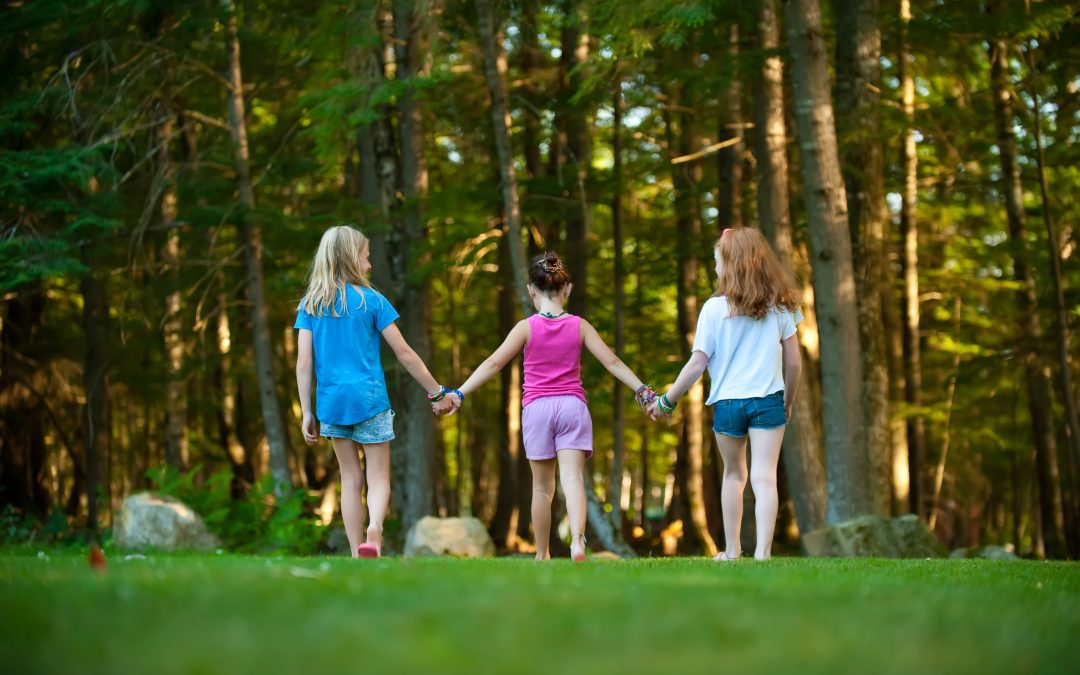Is going to camp with a friend the right choice for your child?
Some kids insist on trekking off to camp with a best buddy. Others would never hear of it. So, is there a right answer to this question? Absolutely! But the answer is different for each child.
Attending a new camp can be intimidating for even the most confident individual. New campers are completely breaking away from their comfort zone, and it is normal for most kids to feel out of sorts during the first several days. While the thought of having a built-in friend may seem comforting now, think ahead. How will your child feel once things have settled and he or she is acclimated to the new situation? Think about the possible situations that may arise, and how your camper and his or her friend might navigate these issues.
Different Families, Different Choices
“I wanted my daughter to go alone,” said Ivy Cooperman of Long Island. “I wanted Dana to have what I had: a whole separate group of camp friends. One of my best friends today is someone I went to camp with. We wouldn’t have that friendship today had we met any differently.” Prior to camp, Cooperman contacted her daughter’s camp for the name of another first-time camper in her area.The girls met beforehand and even went camp shopping together. As Cooperman said, “If nothing else, it was a familiar face on the bus. It was up to them whether they would forge a lasting friendship.”
Zach Cohen of New York City, believes he had the best of both worlds when he started camp five summers ago. “I didn’t plan to go to camp with friends he explained, but two of my friends ended up choosing the same camp. Luckily, we all agreed to bunk separately. This way, we had the comfort of a friend nearby, but also an opportunity to meet other kids.”
Arlene Streisand, director of Camp Specialists, feels it is often the parents, versus the camper, who want their child to know another person at camp. But she believes all kids go to camp with the intention of making new friends. Streisand says, “Kids experience so many special things at camp. If they are fortunate enough to bond with other campers, they will always be able to reflect back upon these experiences together.” Streisand continues, “Going with a friend from home can inhibit branching out and meeting other kids. So, it’s important to make sure the friendship is healthy and on solid ground beforehand.”
What to Consider
Prior to selecting a camp, make sure the camp’s a good fit for both kids. Friends should have parallel interests or the friendship may suffer, as one child thrives and the other may not. If you do decide to have your child attend camp and bunk together with a friend from home, think carefully about the state of this particular friendship. Consider the following:
- Are both children new to this camp or does one friend have a history there?
- Is this a recent or longstanding friendship?
- Are the kids equal partners in the friendship?
- Do the friends know how to successfully work out their differences?
- Does either child get jealous easily?
A little pre-planning goes a long way in determining how the friendship will move forward at camp. All friendships evolve. But the hope is that summer camp will add a richer and deeper dynamic to children who are already friendly in school or in their community.
So, what’s the answer to the age-old question: should your child attend camp with a friend from home? The answer is, trust your instincts, think ahead and communicate with the other child’s family about possible situations. Together you can decide what the right choice will be to ensure a successful summer for both campers.

